Does Federally Funded Research Justify A Piece Of Pharma’s Profits?
Forbes: Drug Truths
MARCH 4, 2024
The thought that all drugs arise from government funded research is a fallacy.
This site uses cookies to improve your experience. To help us insure we adhere to various privacy regulations, please select your country/region of residence. If you do not select a country, we will assume you are from the United States. Select your Cookie Settings or view our Privacy Policy and Terms of Use.
Cookies and similar technologies are used on this website for proper function of the website, for tracking performance analytics and for marketing purposes. We and some of our third-party providers may use cookie data for various purposes. Please review the cookie settings below and choose your preference.
Used for the proper function of the website
Used for monitoring website traffic and interactions
Cookies and similar technologies are used on this website for proper function of the website, for tracking performance analytics and for marketing purposes. We and some of our third-party providers may use cookie data for various purposes. Please review the cookie settings below and choose your preference.
 Research Related Topics
Research Related Topics 
Forbes: Drug Truths
MARCH 4, 2024
The thought that all drugs arise from government funded research is a fallacy.

ASPET
JULY 26, 2024
Meanwhile decades of research have advanced our knowledge of cannabis pharmacology and particularly of the endocannabinoid system with which the components of cannabis interact. Here we highlight the challenges of cannabis research and the gaps in our knowledge of cannabis pharmacology and of the endocannabinoid system that it targets.
This site is protected by reCAPTCHA and the Google Privacy Policy and Terms of Service apply.

Science Daily: Pharmacology News
DECEMBER 2, 2024
New research suggests that large language models like GPT-4 could streamline the process of gene set enrichment, an approach what genes do and how they interact. Results bring science one step closer to automating one of the most widely used methods in genomics research.

Science Daily: Pharmacology News
OCTOBER 23, 2024
Researchers have used artificial intelligence to design thousands of new DNA switches that can precisely control the expression of a gene in different cell types.

Advertisement
Clinical research has entered a new era, one that requires real-time analytics and visualization to allow trial leaders to work collaboratively and to develop, at the click of a mouse, deep insights that enable proactive study management.
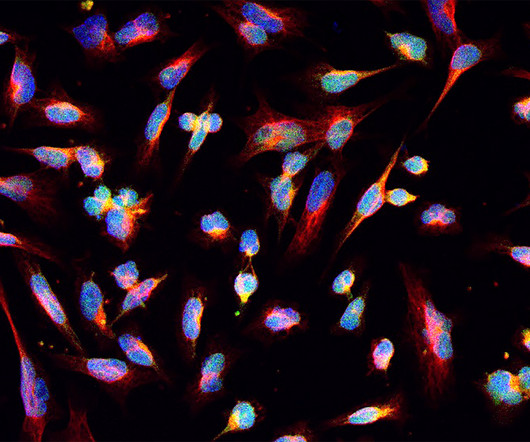
Broad Institute
NOVEMBER 21, 2024
Researchers identify source of a brain cancer’s deadly transformation By Corie Lok November 21, 2024 Breadcrumb Home Researchers identify source of a brain cancer’s deadly transformation Slow-growing glioma tumors become more aggressive when their cells shift identities and acquire new genetic mutations.
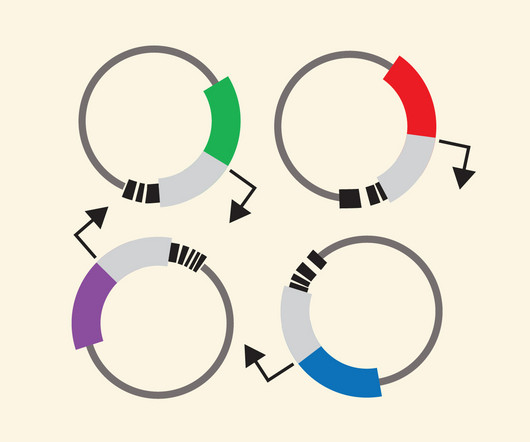
Broad Institute
OCTOBER 23, 2024
Machine learning guides researchers to new synthetic genetic switches By Tom Ulrich October 23, 2024 Breadcrumb Home Machine learning guides researchers to new synthetic genetic switches A new method allows precise activation or repression of genes in specific cells and tissues. By Sarah C.P.
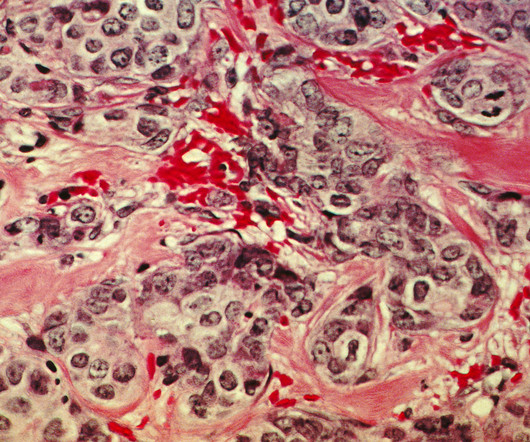
Broad Institute
OCTOBER 30, 2024
Researchers map communities of single cells in metastatic breast cancers By Corie Lok October 30, 2024 Breadcrumb Home Researchers map communities of single cells in metastatic breast cancers The team compared different single-cell and spatial profiling methods to explore the diversity of cells in metastatic breast cancer biopsies.

Science Daily: Pharmacology News
NOVEMBER 21, 2024
Researchers have reported the discovery of a previously unknown compound in chloraminated drinking water. Inorganic chloramines are commonly used to disinfect drinking water to safeguard public health from diseases like cholera and typhoid fever.

Science Daily: Pharmacology News
SEPTEMBER 26, 2024
Researchers have discovered a new bacterium that weakens the immune system in the gut, potentially contributing to certain inflammatory and infectious gut diseases. The team identified the bacterium, Tomasiella immunophila (T.

Science Daily: Pharmacology News
DECEMBER 2, 2024
Researchers have demonstrated a new technique for self-assembling electronic devices. The proof-of-concept work was used to create diodes and transistors, and paves the way for self-assembling more complex electronic devices without relying on existing computer chip manufacturing techniques.

Science Daily: Pharmacology News
SEPTEMBER 9, 2024
Out-of-body experiences, such as near-death experiences, can have a 'transformative' effect on people's ability to experience empathy and connect with others, new research explains.

Science Daily: Pharmacology News
OCTOBER 7, 2024
Researchers discuss the multifactorial barriers including increasing vaccine hesitancy and new clinical and public health challenges in vaccinations of U.S. Over the past decade, decreasing vaccination rates now threaten the huge beneficial impacts of vaccinations in the U.S. and globally.

Science Daily: Pharmacology News
OCTOBER 1, 2024
A research team systematically analyzed 40 empirical studies, the majority of which had found that outdoor air pollution is associated with differences in children's brains. These differences include volumes of white matter, which is associated with cognitive function, connections throughout the brain and even early markers for Alzheimer's.

Science Daily: Pharmacology News
SEPTEMBER 11, 2024
With maps of the connections between neurons and artificial intelligence methods, researchers can now do what they never thought possible: predict the activity of individual neurons without making a single measurement in a living brain.

Science Daily: Pharmacology News
AUGUST 21, 2024
New research shows that rainwater could have helped create a meshy wall around protocells 3.8 billion years ago, a critical step in the transition from tiny beads of RNA to every bacterium, plant, animal, and human that ever lived.

Science Daily: Pharmacology News
OCTOBER 16, 2024
With vigorous debate surrounding the health of the monarch butterfly, new research may have answered the biggest question plaguing butterfly researchers. Why are the wintering populations declining while breeding populations are stable?

Science Daily: Pharmacology News
OCTOBER 1, 2024
A new study documents how Southern Californians are chronically being exposed to toxic airborne chemicals called plasticizers, including one that's been banned from children's items and beauty products.

Science Daily: Pharmacology News
NOVEMBER 18, 2024
Through the intricate study of lava tubes -- caves formed following volcanic eruptions when lava cools down -- an international team of researchers has uncovered clues about Earth's ancient environments that could be significant in the search for life on Mars.

Science Daily: Pharmacology News
OCTOBER 29, 2024
Researchers used laser-guided imaging to uncover vast unexplored Maya settlements in Campeche, Mexico, revealing more than 6,500 pre-Hispanic structures, including a previously unknown large city with stone pyramids.

Science Daily: Pharmacology News
OCTOBER 23, 2024
The researchers found that now a second species of coral larvae responded to the sounds of a healthy reef played through a speaker, indicating 'acoustic enrichment' encourages coral to settle has the potential to be a widely applicable method among coral species for reef restoration.

Science Daily: Pharmacology News
NOVEMBER 7, 2024
It's common knowledge that our brains -- and, specifically, our brain cells -- store memories.

Science Daily: Pharmacology News
OCTOBER 2, 2024
Previous researchers have mapped the brain of a C. Scientists have made an enormous step toward understanding the human brain by building a neuron-by-neuron and synapse-by-synapse roadmap -- scientifically speaking, a 'connectome' -- through the brain of an adult fruit fly (Drosophila melanogaster).

Science Daily: Pharmacology News
SEPTEMBER 16, 2024
An experiment tested six generative large language models against students in an online introductory biomedical and health informatics course. The models scored higher than as many as three quarters of the real-world students in the class.

Science Daily: Pharmacology News
SEPTEMBER 3, 2024
We all know the adage, 'You can't teach an old dog new tricks.' As we age, our ability to learn new skills, like mastering a foreign language or picking up a musical instrument, seems to fade. The culprit? A decline in brain plasticity - the brain's capacity to rewire itself and adapt to new challenges.

Science Daily: Pharmacology News
OCTOBER 17, 2024
A new study opens the door to cutting-edge solutions that could contribute to the realization of a system capable of processing quantum information in a simple yet powerful way. The work presents a method for manipulating the photonic states of light in a never-before-seen way, offering greater control over the evolution of photon propagation.

Science Daily: Pharmacology News
DECEMBER 3, 2024
Scientists demonstrate how a series of extreme weather events could lead to the Arctic's first ice-free day within just a few years.

Science Daily: Pharmacology News
OCTOBER 25, 2024
For all its pervasiveness and the efforts to study it, cancer is still somewhat of a mystery. Why do some animals get it at a higher rate than others?

Science Daily: Pharmacology News
AUGUST 27, 2024
Crime films, action films, comedies, or documentaries? A person's favorite film genre reveals a lot about how their brain works. Fans of action films and comedies reacted very strongly to negative emotional stimuli, while participants who favored documentaries or crime films and thrillers had a significantly weaker reaction.

Science Daily: Pharmacology News
DECEMBER 11, 2024
A new class of magnetism called altermagnetism has been imaged for the first time in a new study. The findings could lead to the development of new magnetic memory devices with the potential to increase operation speeds of up to a thousand times.

Science Daily: Pharmacology News
DECEMBER 2, 2024
A team of astronomers has found that Venus has never been habitable, despite decades of speculation that our closest planetary neighbor was once much more like Earth than it is today.

Science Daily: Pharmacology News
OCTOBER 23, 2024
Bacteria and fungi from the wings of bats could play a significant role in saving them from white-nose syndrome (WNS), a fungal disease affecting the skin of wings and muzzle, which has nearly wiped out vulnerable bat populations across North America.
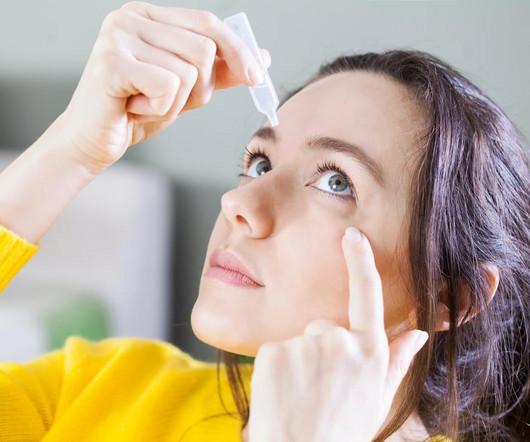
Drugs.com
DECEMBER 20, 2024
FRIDAY, Dec. 20, 2024 -- An existing drug might be able to treat an autoimmune disorder that causes dry eye, dry mouth, fatigue and muscle or joint pain. Baricitinib (Olumiant), a drug currently used to treat rheumatoid arthritis, appears to.

ASPET
SEPTEMBER 16, 2024
Recent work demonstrating the psychoplastogenic effects of psychedelics has reinvigorated research to examine their therapeutic potential in psychiatric conditions. Psilocybin, one psychedelic found in the Psilocybe genus of mushrooms, has exhibited promising antidepressant and anxiolytic effects in preclinical and clinical studies.

Science Daily: Pharmacology News
AUGUST 22, 2024
Non-living hydrogels can play the video game Pong and improve their gameplay with more experience, researchers report. With practice, the hydrogel's accuracy improved by up to 10%, resulting in longer rallies.

Science Daily: Pharmacology News
DECEMBER 2, 2024
Researchers have linked a specific type of body fat to the abnormal proteins in the brain that are hallmarks of Alzheimer's disease up to 20 years before the earliest symptoms of dementia appear, according to a new study.

Science Daily: Pharmacology News
SEPTEMBER 4, 2024
In creating a pair of new robots, researchers cultivated an unlikely component, one found on the forest floor: fungal mycelia.

Science Daily: Pharmacology News
AUGUST 16, 2024
Researchers are setting out to challenge our misconceptions about the Dodo, one of the most well-known but poorly understood species of bird. Researchers have undertaken the most comprehensive review of the taxonomy of the Dodo and its closest relative, the Rodriguez Island Solitaire.

Science Daily: Pharmacology News
OCTOBER 24, 2024
Using a few zaps of electricity to the skin, researchers can stop bacterial infections without using any drugs. For the first time, researchers designed a skin patch that uses imperceptible electric currents to control microbes.
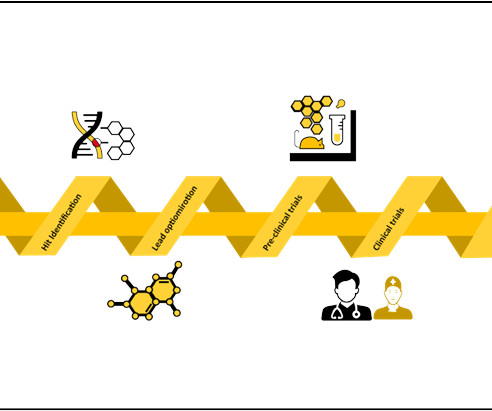
Nvidia Developer: Drug Discovery
OCTOBER 30, 2024
The integration of AI in drug discovery is revolutionizing the way researchers approach the development of new treatments for various diseases. The integration of AI in drug discovery is revolutionizing the way researchers approach the development of new treatments for various diseases. Traditional.

Nvidia Developer: Drug Discovery
NOVEMBER 13, 2024
The ability to compare the sequences of multiple related proteins is a foundational task for many life science researchers. The ability to compare the sequences of multiple related proteins is a foundational task for many life science researchers. This is often done in the form of a.

Science Daily: Pharmacology News
SEPTEMBER 4, 2024
A research team has investigated the effects of PFAS on the brain. Using a combination of modern molecular biology methods and the zebrafish model, the researchers revealed the mechanism of action and identified the genes involved. They adversely affect health and can lead to liver damage, obesity, hormonal disorders, and cancer.

Science Daily: Pharmacology News
SEPTEMBER 11, 2024
The research shows that decision-making is a global process across the brain that is coordinated by learning. The findings could aid artificial intelligence research by providing insights into how to design more distributed neural networks.

Science Daily: Pharmacology News
NOVEMBER 22, 2024
New research has uncovered what may be the oldest direct evidence of ancient hot water activity on Mars, revealing the planet may have been habitable at some point in its past.
Expert insights. Personalized for you.
We have resent the email to
Are you sure you want to cancel your subscriptions?

Let's personalize your content